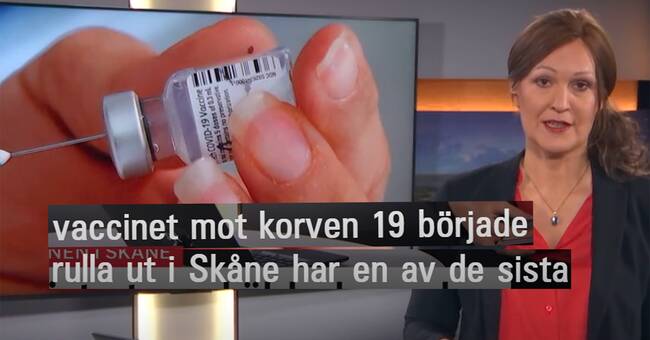Hosts and reporters talk about covid-19: but in the text it says "sausage 19", "came at 19", "cows at 19" and "the choir 19".
In the clip above, we have collected some examples of what it might look like.
It is not just covid-19 that the automatic subtitling is difficult to understand.
An interviewee who says that he did not get anywhere is texted to be about an al-Qaeda leader, "no problems at all" becomes "health problems" and a summer night at the end of July is subtitled as "stopped with Christmas cuddles".
A predator expert who says that the wolf would be stressed in this part of the country is texted to talk about luxury travel.
How can it be so wrong?
The subtitles are created by artificial intelligence
The subtitling of SVT's local news is not done by subtitles, which subtitle other SVT programs, but is a function created by artificial intelligence, AI.
On a number of occasions it has gone completely wrong - what has happened?
- The technology is new and still evolving.
There are several factors that affect.
Sometimes it is new words that AI has not had time to learn, but the biggest factor that has influenced is how well AI manages to perceive what is being said.
If there is a lot of background noise around the speaker or music, it is more difficult to perceive correctly, says Håkan Grimfeldt who is group manager for SVT's live subtitles.
More difficult with Scanian
In several cases, it seems that Skåne will be a difficult nut to crack for the system.
Håkan Grimfeldt says that dialects can affect how what is said is perceived.
- Yes.
We can see that there is a difference in the results between dialects, but the factor that affects the most is still how well the voice in the program is heard in relation to other sounds in the program.
How does SVT handle situations where it appears that the interviewee says something completely different than what they actually do?
- We add a disclaimer text that accompanies each broadcast: “Automatic subtitle.
May contain errors. ”.
If errors occur that are serious, we go in and correct them, says Håkan Grimfeldt.

